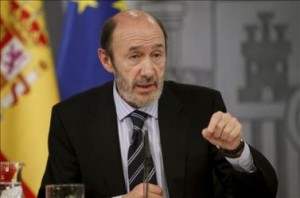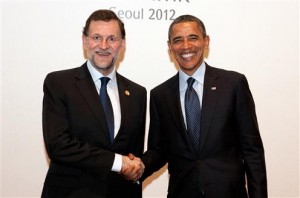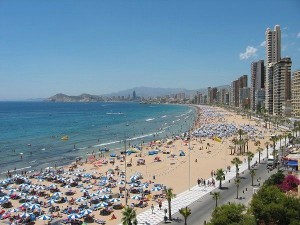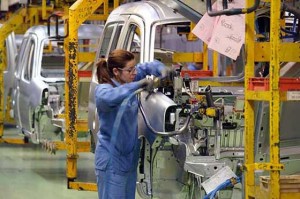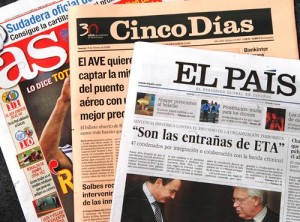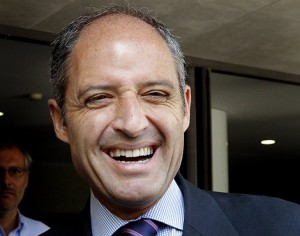Leading an opposition party during a time of economic crisis should, in theory, be a straightforward job, with none of the worries and responsibility that governing in such times entails. But in Spain, that’s not the case for Alfredo Pérez Rubalcaba, who was chosen to continue heading the Socialist Party earlier this year, despite losing the 2011 general elections. Rubalcaba is one of Spanish politics’ canniest figures. Critics confer on him the sinister powers of a Rasputin, due to his alleged ability to manipulate issues and people behind the scenes. But his gift for communicating also puts most of his political colleagues in the shade. One television reporter tells of how, when making … [Read more...] about A dilemma for Spain’s Socialists
spanish politics
Time for Spain’s ‘indignados’ to prove their relevance
As the 15-M movement, or indignados, prepare to commemorate their first anniversary, it says plenty about the state of Spain and its economy that much of the news coverage has focused on the possibility of clashes between demonstrators and police this weekend. With gatherings and marches scheduled across the country, from Saturday until the symbolic May 15 date itself, the scene is set for a huge turnout and another expression of anger and outrage at Spain’s political class and their handling of the economy. Many fear that this will spill over into violence, either on the part of the protesters, or the police. Violent confrontation was not something associated with los 15-M when they … [Read more...] about Time for Spain’s ‘indignados’ to prove their relevance
Is Catalonia going the way of Slovenia?
When, at his party's congress on March 28-29, the former Catalan president Jordi Pujol exclaimed that "we live in a state that has no Constitution", he touched the nerve of a Catalan nationalism that has become increasingly belligerent. It’s a nationalism that openly defies court sentences it believes threaten the nation it claims to represent, such as the Constitutional Court's ruling on the region’s Statute of Autonomy (or Estatut) in 2010 or more recent ones by the Supreme Court related to language use in Catalonia. No wonder that at the same congress, Convergència Democràtica de Catalunya (CDC) adopted a strategy that, even though it avoids the word "independence", strongly argues for … [Read more...] about Is Catalonia going the way of Slovenia?
Five things Mariano Rajoy has learned in his first 100 days
1. Blaming the previous government can only get you so far. The Socialists left the public accounts in mess, let unemployment soar, and failed to acknowledge the crisis in the first place…We’ve been hearing all that for the last two years or so from the Partido Popular (PP). And turning the Spanish economy around in the near future, given the state it was in at the end of 2011, is a tough –some would say impossible- task. So far the governing party’s own support has remained steady, according to polls, even if Rajoy’s has slipped slightly. But at some point very soon, Spaniards are going to stop thinking about Zapatero’s feeble economic legacy and start focusing exclusively on the … [Read more...] about Five things Mariano Rajoy has learned in his first 100 days
The Spanish economy’s sustainability dilemma
"Environmental sustainability cannot be understood today without taking into account the economic factor. Only when environmental policy is economically viable can it be sustainable over time. Economic viability and environmental sustainability will be, therefore, the two aims of the policy that this ministry will pursue.” This sentiment, voiced by Environment and Agriculture Minister Miguel Arias Cañete recently, sounds sensible enough. But the full content of his speech, addressed to a congressional committee and outlining his intentions for this legislature, has stirred some deep fears among environmentalists. It has also brought the sustainability-versus-growth debate into the … [Read more...] about The Spanish economy’s sustainability dilemma
Rajoy, reform and the burden of employment expectations
As thousands took to the streets at the weekend, it quickly became clear that the Partido Popular’s approach to job creation had more than a few critics. Focusing their anger on reforms passed on February 9, critics called out the new government’s efforts to reduce mandatory severance pay from 45 to 33 days per year worked and allowing what they felt was an unfair freedom for companies to opt out of collective bargaining agreements and adjust wages and hours according to their financial standing. The Rajoy government insisted that it “wants to give firms the ability to modify workers' hours in response to demand rather than simply laying them off, bringing an end to the rapid rise in … [Read more...] about Rajoy, reform and the burden of employment expectations
The importance of being ‘El País’
One of my clearest memories from the years I spent working at the English edition of El País newspaper was a 6pm editorial meeting in 2007, the day of the launch of rival publication Público. These evening meetings are when the paper’s section heads tell editor-in-chief Javier Moreno what they are going to publish. I remember them as dull but rather tense affairs, where each head would deliver his (it was almost always a man) spiel, and hope not to have it verbally machine-gunned by the boss. But on this particular occasion, Moreno began the meeting with an appraisal of new arrival Público. “Whatever else one might think, they have a very clear idea of Spain and who their readers are,” he … [Read more...] about The importance of being ‘El País’
Back to the future with Rubalcaba
Unity, strength and change were the basis of Alfredo Pérez Rubalcaba’s rallying cry on winning the Spanish Socialist Party primary by the slimmest of margins on Saturday. But unity currently looks a tall order for the party, given that its 900 or so delegates were divided almost exactly down the middle in choosing Rubalcaba over Carme Chacón. And it can hardly daw on much strength, either, following its record losses in local and general elections in 2011. Rubalcaba himself was the candidate who suffered the general election loss, the Socialists’ worst in the democratic era, and it is now he who has been chosen to pick up the pieces and redefine the party. So change it is. What that … [Read more...] about Back to the future with Rubalcaba
Spain’s Socialists will get a new leader, but will they get new ideas?
The Socialist conference in Seville, where a new leader will be chosen this weekend, is supposed to set the tone for the party for the next few years. But the weeks leading up to the event have been dominated more by rumour and intrigue than ideas. This hearsay and speculation has focused in great part on which of the two candidates certain heavyweight party figures will put their weight behind. For example, whether José Antonio Griñán, Socialist leader in the party’s stronghold of Andalusia, will support Alfredo Pérez Rubalcaba or Carme Chacón. Reports suggest he will back the latter, but former Prime Minister Felipe González, by contrast, has come out in favour of the veteran Rubalcaba … [Read more...] about Spain’s Socialists will get a new leader, but will they get new ideas?
Valencia’s Camps is off the hook, but something still smells rotten
Francisco Camps has reason to celebrate. The Popular Party’s former president of the Valencia region has been absolved of charges of taking bribes in the form of designer suits and other garments from a businessman at the heart of the Gürtel corruption scandal. After a two-week trial, the jury voted, five votes to four, that the accusations could not be proved. But while Camps has expressed his joy at defeating the conspiracy he says was behind this case, his own party has been less jubilant. Virtually all the senior party figures who have responded to the verdict have advised Camps to take a break from politics, from Valencia mayor Rita Barberá to Alberto Fabra, his successor as regional … [Read more...] about Valencia’s Camps is off the hook, but something still smells rotten
